A house divided

18957584 – red rooftop against blue sky
Nine area leaders reflect on the nation’s heated divisions and possible paths to harmony and understanding here in Ocala
Election Day 2020 may be over, but political animosities linger as Republicans and Democrats, liberals and conservatives, whites and people of color, the working class and the perceived elites, continue to wage a pitched battle for the soul of America.
The outcome of the election seems set at this point – although a fair number of Republicans disagree still. But the cultural, racial and values divisions that have surfaced in recent years figure to be with us for some time, fueled in large part by defining issues like police shootings of Blacks, COVID-19 and immigration, among other things.
Against this backdrop, we asked some of Ocala’s community leaders – people with front-row seats to workplaces, faith groups, local institutions and Ocala at large – to share their insights into the causes of these divisions and, importantly, their recipes for healing.
Here is what they said:
Lauren Deiorio
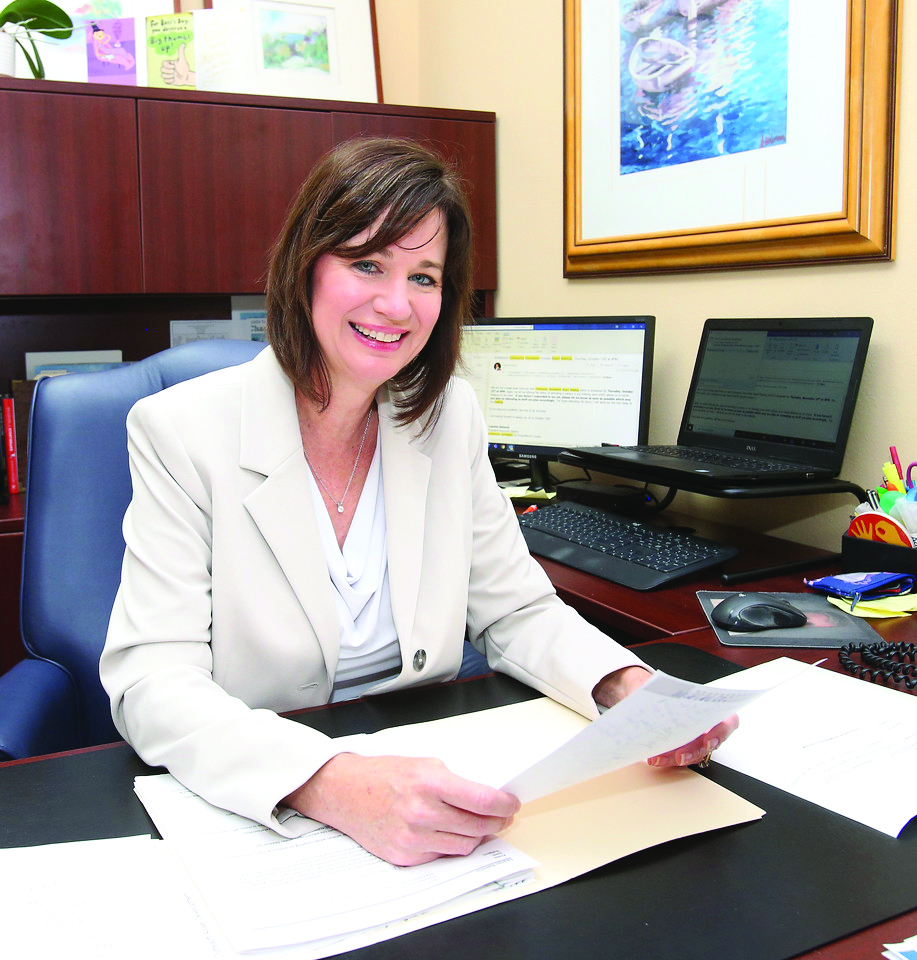
‘When these heated issues run their course, how are you going to repair the relationships you destroyed?’
For Lauren Deorio, president and executive director of the Community Foundation of Ocala/Marion County, the social, political and cultural tensions that divide people hit home, literally: Deorio’s hometown of Louisville, Ky., suffered devastating riots in the wake of the shooting of Breonna Taylor.
“The destruction has left many to wonder who is going to be responsible for the cleanup,” she said. “The focus needs to be on constructive action not destructive behavior.”
Yet the Foundation that Deorio leads is trying to play a leadership role in tempering the animosities and bringing about mutual respect and understanding.
“We have had multiple discussions with our board members on this topic. The Foundation is always happy to facilitate discussion for those willing to discuss community issues in a constructive manner. The hope would be that those discussions will inspire action items that both parties can agree on in order to create harmony in the community.”
She acknowledges, however, that some people just seem too entrenched in their anger.
“The name-calling and attacks because someone has a differing opinion, whether that is politics, COVID-19 — masks on or masks off — or even social issues, has escalated to a disappointing high,” she added. “So, what I really want to ask these people is, when these heated issues run their course, how are you going to repair some of the relationships you destroyed?”
Scot Quintel
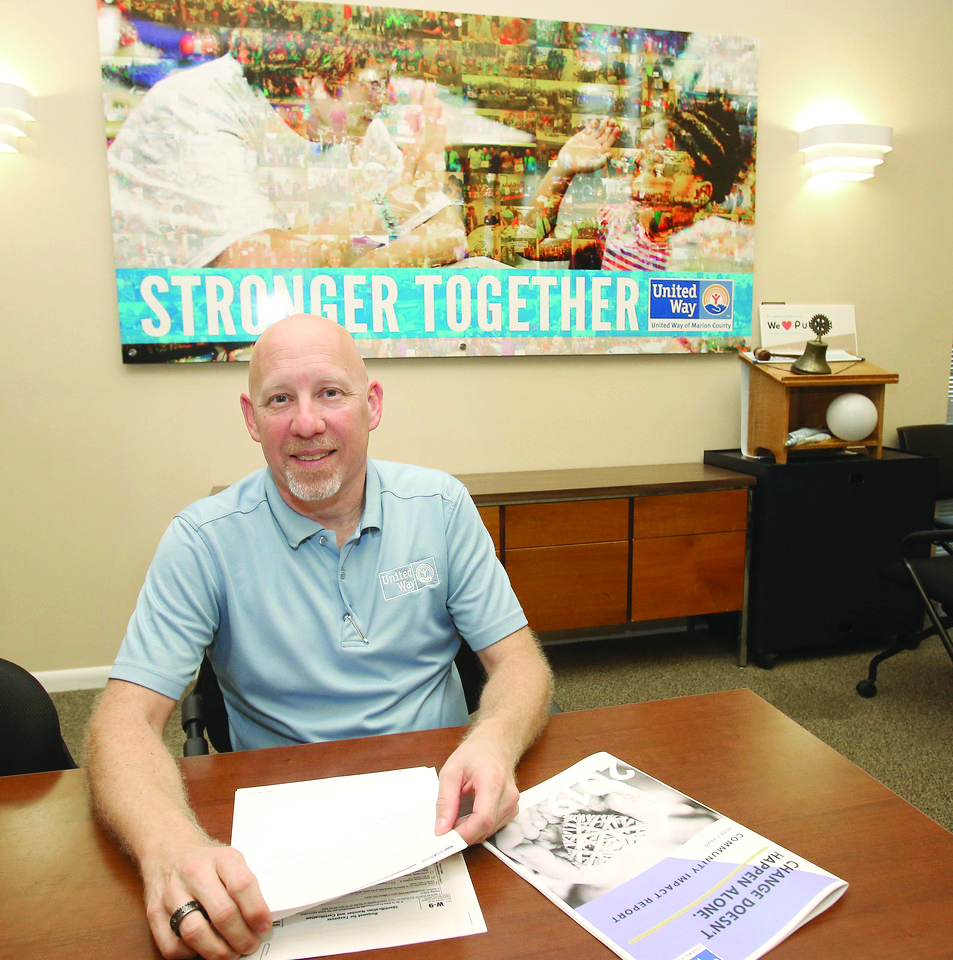 ‘We seek to be understood rather than trying to understand’
‘We seek to be understood rather than trying to understand’
Scot Quintel, executive director of the United Way of Marion County, said the current political divisions in the country are palpable within his organization from time to time, and coping with them is a matter of trying to understand and respect the other person.
“While I see individuals and organizations continue to work together, you can also feel tension in the air from time to time, and that makes bringing folks together something of a challenge,” he said. “From an organizational standpoint, it’s more important than ever to be cognizant of where the other person is coming from.
“It’s about being respectful. One of the things that has changed drastically over the past 15 or 20 years is we now seek to be understood rather than trying to understand.”
Quintel, who said he is registered as an independent to avoid political conflict, said part of the problem these days is there is just so much focus on the divisions in society.
“I think we’re just more aware of it, but we have not seen it rise to a level where organizations and individuals can’t work together,” he said. “It’s there, but we have not seen where those feelings are so strong that they stand in the way of progress.”
Matthew Wardell
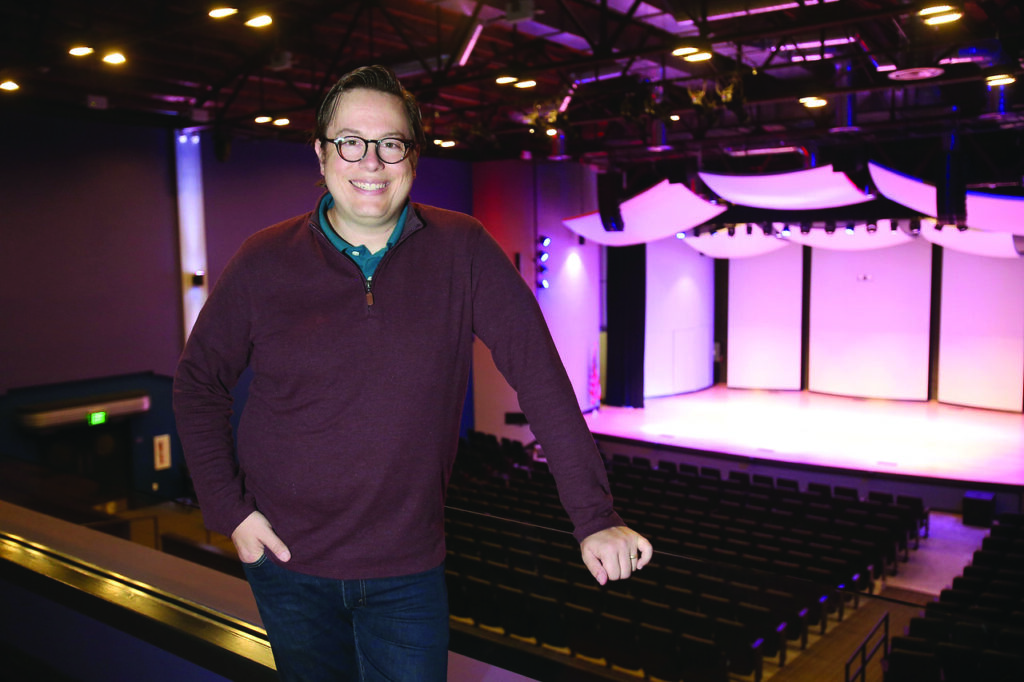
Matt Wardell, the conductor of the Ocala Symphony Orchestra and an Ocala City Councilman, poses for a photo in the Reilly Arts Center in Ocala, Fla. on Wednesday, Nov. 11, 2020. [Bruce Ackerman/Ocala Gazette] 2020.
‘You have so much more in common with the couple you’re shopping next to than you have differences.’
Ocala City Councilman Matt Wardell sees a dangerous and frustrating shift: So many people now view all things through a partisan, political lens.
“As a local government person, I can’t think of a single time I’ve asked myself, ‘What is the proper Republican or Democratic response to this request for street paving? What is the partisan answer to this wastewater issue?’ But if you followed social media, you would think this is how all these issues are dealt with.”
Cliché as it may seem, Wardell believes listening to those with opposing views – really listening – is key to finding common ground and preserving important relationships.
“What are they upset about? What data or information is directly driving their position? I try to put myself in that person’s shoes and allow myself to imagine that position. It’s important to know that, yes, they could be acting from a gaslit position based on bad information, or they could genuinely be in a different place than you.
“Then, try to find common ground and begin the reverse of this process. Maybe explain — without saying ‘you’re wrong’ — why you feel the way you do. Of course, this is only possible when communicating in good faith and with the understanding that there are some facts that, no matter how you feel about them, don’t change.”
Wardell’s message to the wider community is, essentially, love thy neighbor.
“The 24/7 news cycle, Tallahassee and Washington politicians and special interest groups will never bring in your garbage can when you forget or loan you a tool when you need it the most. Your neighbors will. You have so much more in common with the couple you’re shopping next to than you have differences. Be thoughtful, care for one another, and remember everyone wants the best for their family, their community, and for this great country.”
Beth McCall
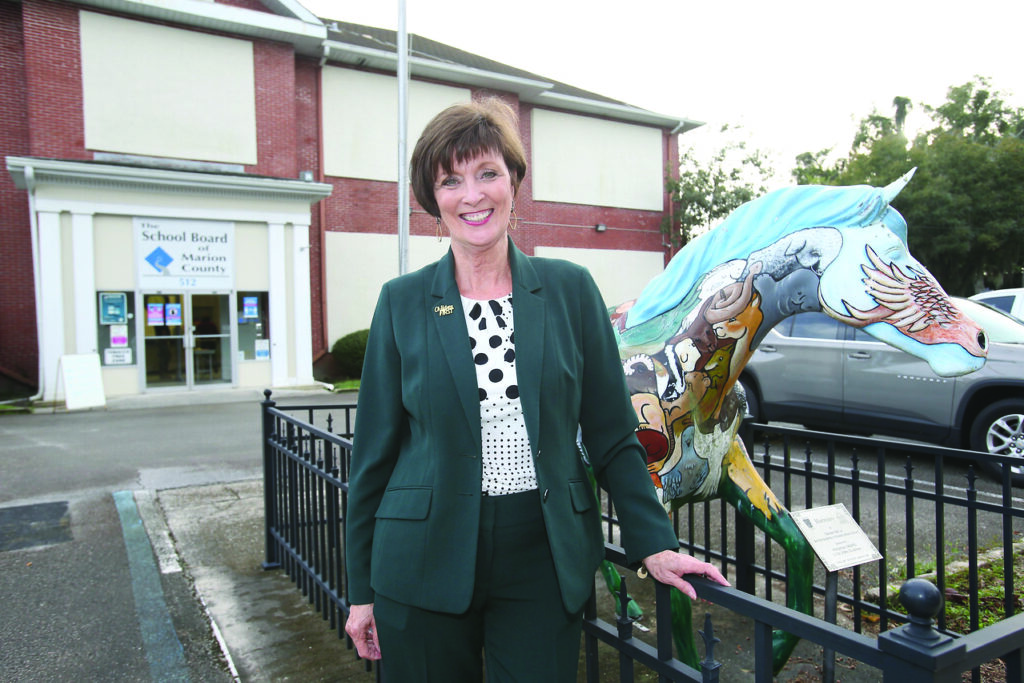 ‘The lack of civility and intolerance for differences has come to a head.’
‘The lack of civility and intolerance for differences has come to a head.’
School Board member Beth McCall, who also serves as executive director of the Marion County Children’s Alliance, said there is no question the country is divided – and she believes the COVID-19 pandemic has only made things worse.
“The lack of civility and the intolerance for differences has absolutely come to a head in this country,” she said. “There used to be a point not too long ago where you could agree to disagree. And until we can sit down at the table together and find the root cause of that anger, it will continue.”
McCall believes the pandemic has made a bad situation even worse.
“Absolutely. I think what COVID has done is we have become so isolated from each other, even our families,” she said. “So, we’re turning to television and social media more than ever before. I think that has exacerbated tempers. The isolation is preventing us from having the good conversation we would have if we were not isolated.”
She believes people have stopped trying to understand where the other person is coming from.
“Now, it’s ‘I’m right, you’re wrong,’” she said.
Yet, McCall believes people generally have more in common than not.
“I think collectively we all want pretty much the same things,” she said. “We want to be successful. We want our community to be safe for our children. We want good jobs. We all agree on the important stuff. We really do.”
TiAnna Green
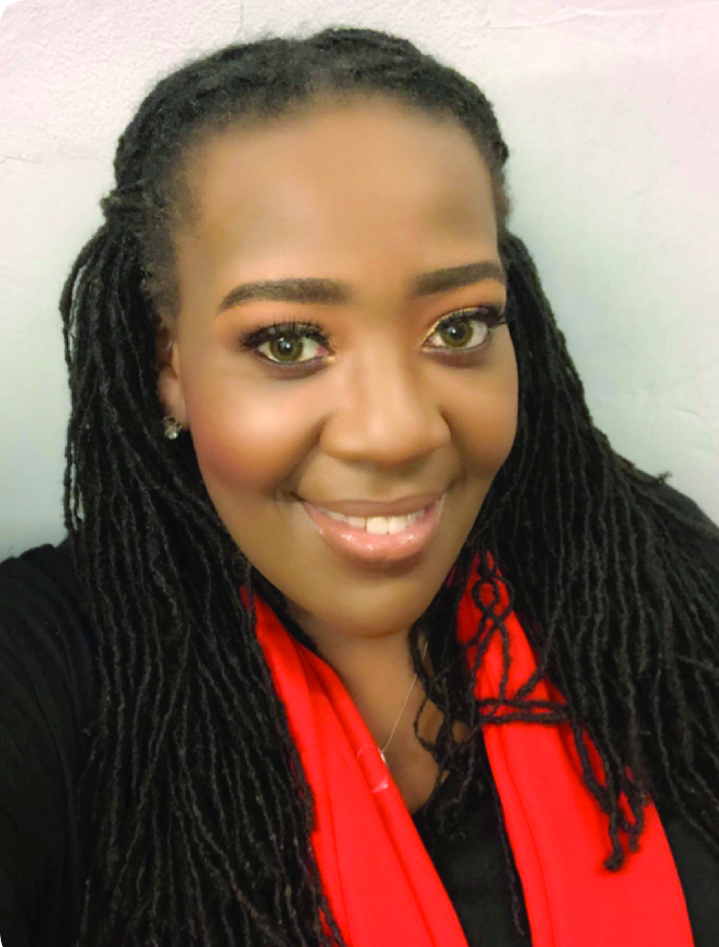 ‘We have to speak change, show change with our actions and carry the hope for change within our hearts.’
‘We have to speak change, show change with our actions and carry the hope for change within our hearts.’
Tianna Greene traces much of the current discord to the 2008 election of Barack Obama. Her granddaughter came home from school crying uncontrollably because a white classmate badgered her about whether she liked white people.
“I was very upset about the situation because I had not planned to talk to her about race until she was of an age to understand, and due to the actions of another, I was forced to have the conversation during a time she was hurt and didn’t fully understand.”
When Donald Trump emerged as a candidate in 2015, she feared a widening racial and cultural divide. “The divide was widening right before our eyes and there was absolutely nothing we could do about it. Many African Americans felt that the unrest we experienced during COVID and the excessive use of force that caused the deaths of George Floyd and Breanna Taylor as well as the murder of Ahmaud Arbery was only the tip of what could happen if this country remains divided.”
She believes the key to harmony is to understand differences, rather than defending them.
“It will take immeasurable time to heal from the racial tension we have experienced, but it’s not impossible,” Greene said. “We have to speak change, show change with our actions and carry the hope for change within our hearts. We all have to be willing to put in the work by accepting the fact that our differences will remain, but how we interact within our differences will need to change.”
Michelle Stone
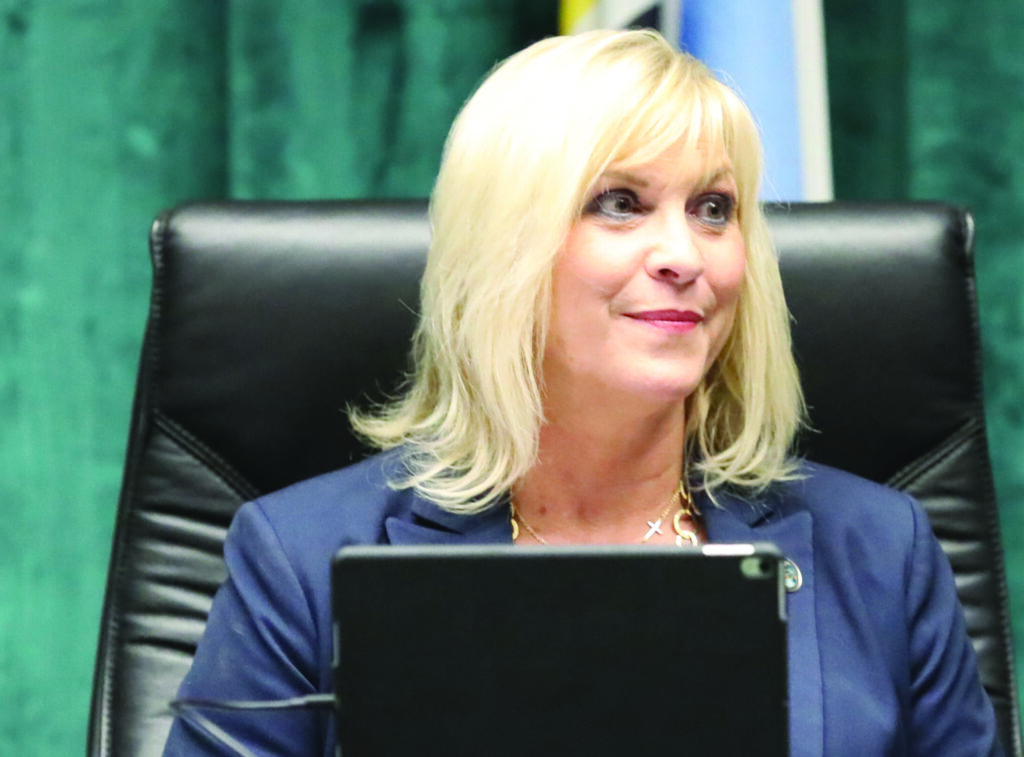
Michelle Stone of the Marion County Commission listens during a zoning and planning meeting on the Double Gate ATV Park at the Marion County Commission auditorium in Ocala, Fla. on Wednesday, June 17, 2020. Blitch Plantation, Ltd. and International Property Services, the owners of 240 acres are proposing a large ATV park near the intersection of County Highway 329 and County Highway 318 in Flemington. [Bruce Ackerman/Ocala Gazette] 2020.
‘Nothing is more poisonous than hate, nothing stronger than love.’
Marion County Commissioner Michelle Stone said her beliefs and values are strongly aligned with most of her family and friends, but she tries to be respectful in acknowledging other people’s opinions and values. Most people have been respectful of hers in return, she said.
“I believe each of us has a leadership role to help others move past these differences,” she said. “We have the next generations watching how we respond to each other. We must show them that it is OK to have different opinions and still be respectful and tolerant of each other. It’s these types of interactions that allow us to grow and mature in our own thinking and strengthen relationships.”
Stone said she has often used Abraham Lincoln’s quote: “I don’t like that man. I must get to know him better.”
“I believe most people have the best of intentions and want a stronger, better position for themselves and their families,” Stone said. “How we achieve that depends on how we treat each other. Nothing is more poisonous than hate, nothing stronger than love. What’s a better way forward than filtering our thoughts and actions toward each other than by applying The Golden Rule?”
The Rev. Pat Sheedy
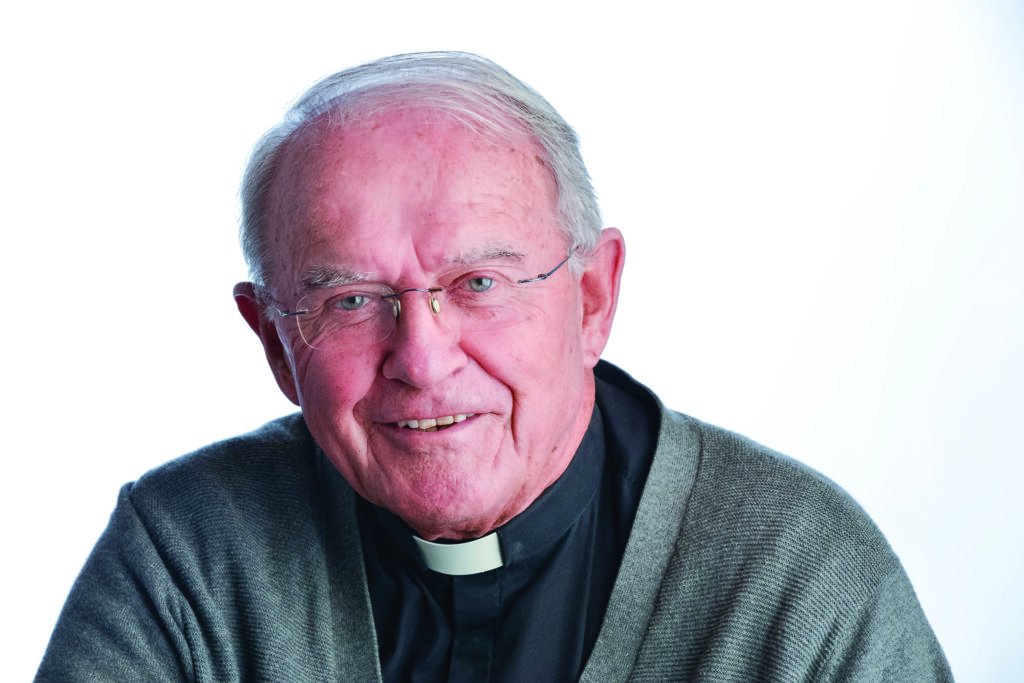 ‘I’m hoping that people will come to the realization that every life, from conception to natural death, has dignity, and look forward to the day when each of us promotes the positive.’
‘I’m hoping that people will come to the realization that every life, from conception to natural death, has dignity, and look forward to the day when each of us promotes the positive.’
The Rev. Pat Sheedy, pastor of Blessed Trinity Catholic Church in Ocala, oversees one of the biggest flocks among local religious leaders, with roughly 3,500 families on record as parishioners. As Catholics, his parishioners adhere to a faith tradition that straddles the red-blue, left-right divide.
Despite being perched above such a large and diverse parish, Sheedy has remained relatively distant from the presidential election fray.
“I’m sure it does split people,” he said, “but they don’t discuss politics with me.” Sheedy noted that the Catholic Church teaches that its faithful have a “moral obligation” to vote, but it doesn’t instruct them whom to vote for.
Yet, Sheedy said, the public can take a lesson from Pope Francis’s latest encyclical, “Fratelli Tutti,” which translates as “Brothers All.”
Francis encourages people to look at the innate dignity of all human beings, regardless of social status. He denounces the “danger of thinking that we have to protect ourselves from one another, of viewing others as competitors or dangerous enemies.”
“The best way to dominate and gain control over people is to spread despair and discouragement, even under the guise of defending certain values. Today, in many countries, hyperbole, extremism and polarization have become political tools. Employing a strategy of ridicule, suspicion and relentless criticism, in a variety of ways one denies the right of others to exist or to have an opinion,” Francis wrote.
Against that backdrop, Sheedy noted, “I’m hoping that people will come to the realization that every life, from conception to natural death, has dignity, and look forward to the day when each of us promotes the positive. We must all gather together and learn to live together.”
Barbara Fitos
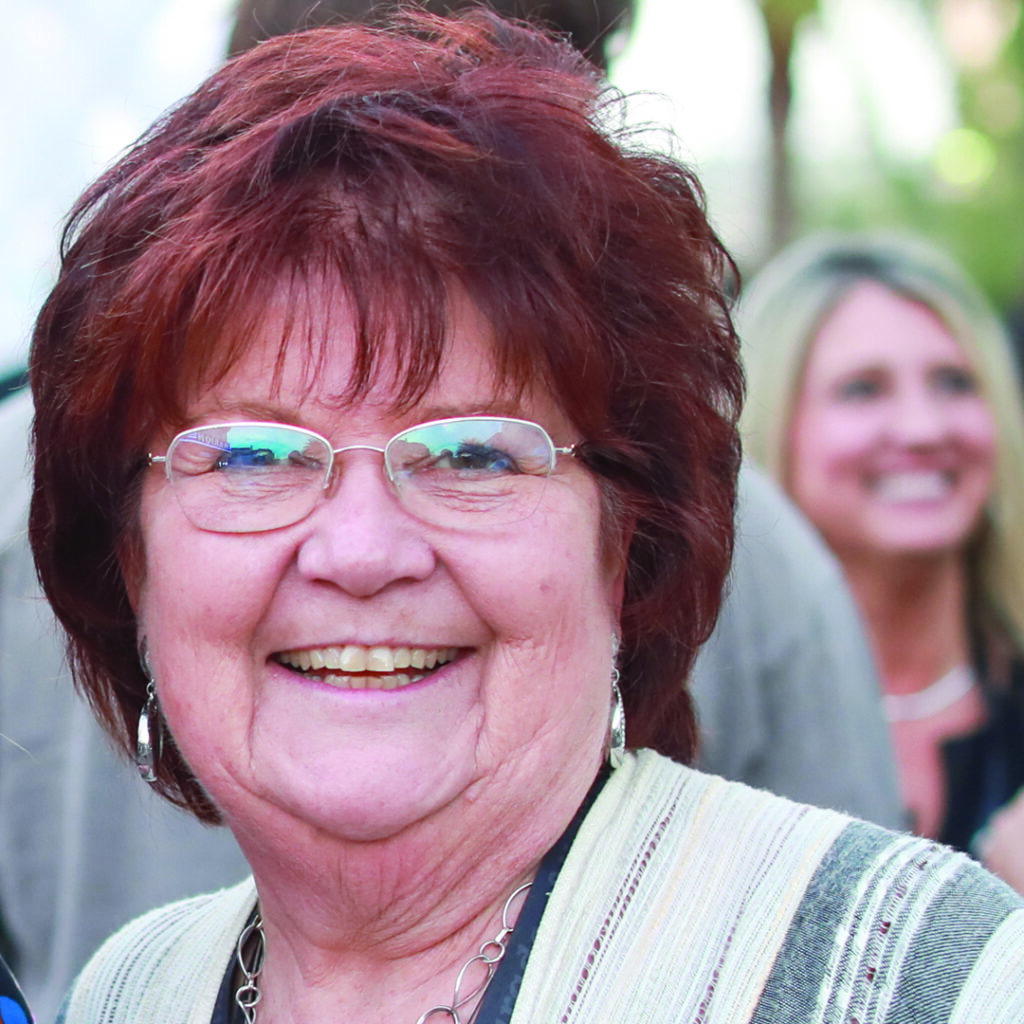 ‘I don’t think in a lot of cases we’ve asked each other, ‘I want to understand why you feel that way.’
‘I don’t think in a lot of cases we’ve asked each other, ‘I want to understand why you feel that way.’
Barbara Fitos, the last Democrat elected to the Marion County Commission, knew of one instance where the Trump-Biden divide affected a friend.
An 84-year-old friend is a Biden supporter, Fitos said. Many of the woman’s out-of-state relatives backed the president. As the race proceeded, Fitos said, her friend largely ignored election materials her family sent her and withdrew from them.
“That’s a sad thing to hear, that they were so entrenched that nothing she could say can sway them,” said Fitos.
But Fitos also sees this in her own life. Her son, Joseph, is a longtime Republican, she said. “We just understand that we have different viewpoints,” she added. And Fitos recalled that she, too, ignored or deleted social media posts or emails from Trump fans that she felt went too far.
Yet Fitos acknowledges that Team Blue can be at fault as well.
“I’m very concerned that we’re so, so divided. It’s never been this bad in my recollection,” said Fitos. “It has devolved into animosity, and it doesn’t have to.”
Fitos admitted she wasn’t sure how to bring people closer. She suggested a public gathering of civic leaders discussing how to bridge the gap may help. She noted that she recently gave a TED talk entitled “Beyond the Choir,” in which she discusses in part how to get beyond “preaching to the choir.”
“The only way to get beyond it is to make a concerted effort to choose to listen to the other side and not be dismissive when they start down a path,” Fitos said. “And that applies to both sides.”
Kevin Sheilley
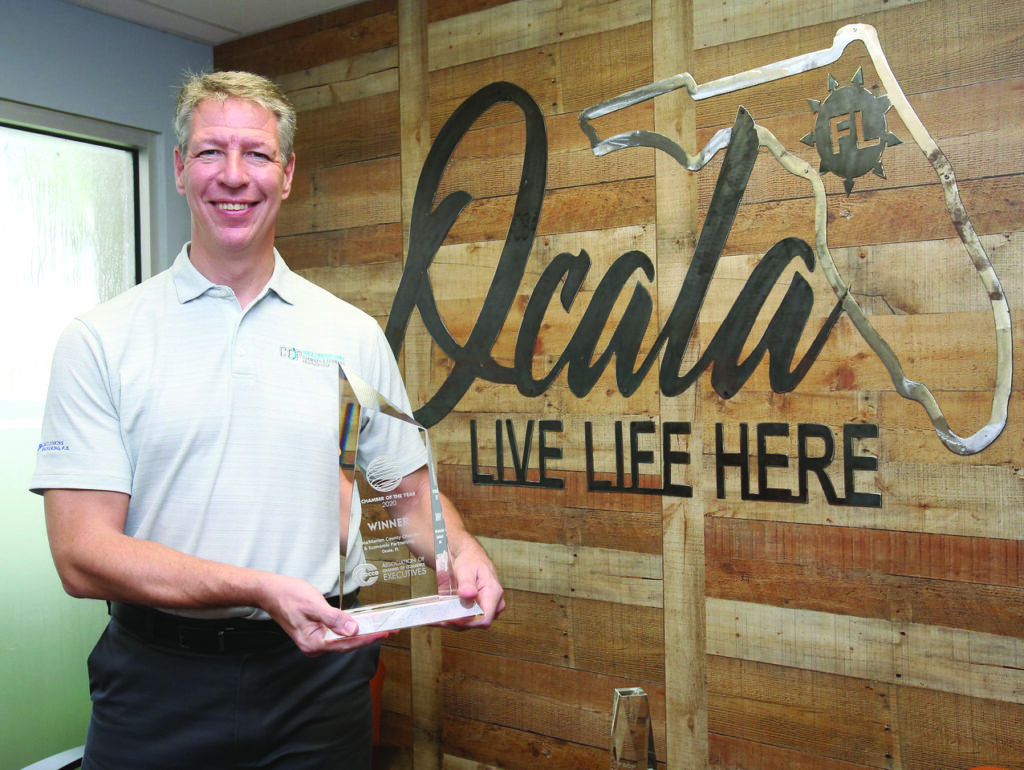 ‘My faith demands that I see each individual as God sees them – fearfully and wonderfully made and made with a purpose.’
‘My faith demands that I see each individual as God sees them – fearfully and wonderfully made and made with a purpose.’
Kevin Sheilley, president of the Ocala Marion County Chamber and Economic Partnership, believes people fall into two camps: they believe they need to engage everyone on issues or they believe they should not engage on any issue. “It is an all or nothing dialectic that I think just further stresses individuals,” he said.
“The current partisanship is focused on what divides, but I think my role, my responsibility is to focus on what unites us as a community. When we focus on what we share, it is then easier to see those with whom we disagree on other issues as worthy opponents and not mortal enemies.”
The CEP, by definition, is an organization that brings people and organizations together for a common cause. He says he tries to model that approach in his life and hopes others do the same.
“The only way that is possible is if we know and are known broadly,” Sheilley said. “Additionally, my faith demands that I see each individual as God sees them – fearfully and wonderfully made and made with a purpose. In other words, I have to value each person.
“This does not mean that we cannot have strong opinions and beliefs or that it is inherently wrong to disagree. However, we must view others as valuable as individuals and if we can find no other commonality, we can find it as fellow citizens and in our joint humanity.”





